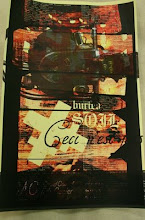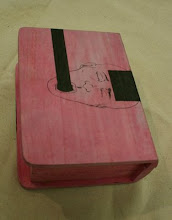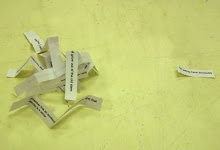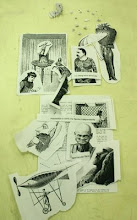 |
| A fight to the finish |
A week or so back, we read and discussed Dorothy Sayers' remarkable essay (speech, originally) "Why Work?" You can read it
here, if you don't mind a few typos, or you can find it in
this book. Sayers makes several arguments throughout the essay, all of which have to do with the work, or jobs, we undertake in our modern society. The devastation surrounding her as she spoke--the height of the Second World War--underscored her point about consumption and the need for humans to be re-oriented with regard to the kind of work they do and the sorts of lifestyles they will tolerate:
A society in which consumption has to be artificially stimulated in order to keep production going is a society founded on trash and waste, and such a society is a house built upon sand.
It is interesting to consider for a moment how our outlook has been forcibly changed for us in the last twelve months by the brutal presence of war. War is a judgment that overtakes societies when they have been living; upon ideas that conflict too violently with the laws governing the universe. People who would not revise their ideas voluntarily find themselves compelled to do so by the sheer pressure of the events which these very ideas have served to bring about.
Before she gives her suggestions for how to revolutionize work and consumption--suggestions that, although explicitly founded on a Christian worldview, feel very different from what we might expect from such a foundation--she asks a series of questions illustrating what a change in attitude about work might look like:
We should ask of an enterprise, not “will it pay?” but “is it good?”; of a man, not “what does he make?” but “what is his work worth?”; of goods, not “Can we induce people to buy them?” but “are they useful things well made?”; of employment, not “how much a week?” but “will it exercise my faculties to the utmost?” And shareholders in – let us say – brewing companies, would astonish the directorate by arising at shareholders’ meeting and demanding to know, not merely where the profits go or what dividends are to be paid, not even merely whether the workers’ wages are sufficient and the conditions of labor satisfactory, but loudly and with a proper sense of personal responsibility: “What goes into the beer?”
She points out one key consequence of our current habit of asking the wrong questions about work (i.e., not the questions listed in the above passage):
At present we have no clear grasp of the principle that every man should do the work for which he is fitted by nature. The employer is obsessed by the notion that he must find cheap labor, and the worker by the notion that the best-paid job is the job for him.
We assign this essay because we want our writers and artists to think about their own vocations--to put some pressure on their thinking about whether or not they're called to be writers and artists, and if so, what might that look like as a regular practice of labor. But Sayers's essay came to mind earlier this week, in another context, when I happened across an article in The Atlantic called "
What Amazon Does to Poor Cities." The whole thing is worth reading, especially as, I suspect, many of us have been ramping up our e-commerce shopping, but also as we're contemplating a landscape where work and remuneration will look very different for our soon-to-be graduates. One passage that leapt out to me:
San Bernardino is just one of the many communities across the country grappling with the same question: Is any new job a good job?
Read the
rest to find out.
















































































No comments:
Post a Comment